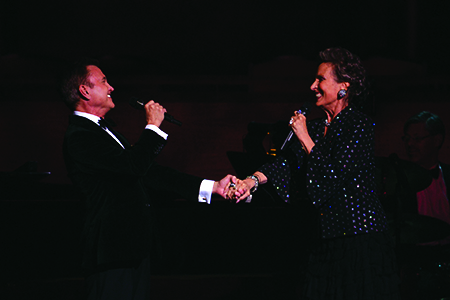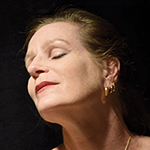The 29th New York Cabaret Convention
The Night They Invented Champagne:
The Lyrics of Alan Jay Lerner
Hosts: Andrea Marcovicci and Jeff Harnar
Rose Theater, NYC, October 12, 2018
Reviewed by Alix Cohen for Cabaret Scenes
Photos: Maryann Lopinto
Stearns Matthews’ smooth, soaring “On a Clear Day You Can See Forever” (music: Burton Lane; piano: James Horan) sets the tone for an evening reflecting not just Alan Jay Lerner’s centenary, but also his hopeful outlook on a questionable future.
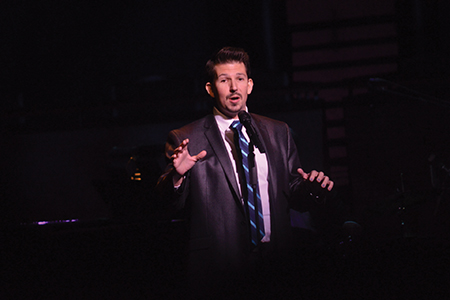
Andrea Marcovicci and Jeff Harnar sparkle with affection, respect, and good spirits. Her “Mr. Right” expresses every young girl’s dream as the girl would (Love Life; music: Kurt Weill; piano: Alex Rybeck). His “Come Back to Me” is so insistent one almost tangibly feels his force of will. (On a Clear Day You Can See Forever; music: Lane; piano: Rybeck.) These artists have more than earned their place in the cabaret pantheon.
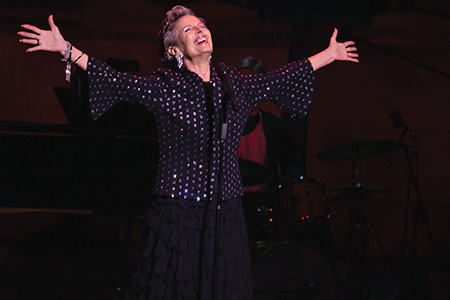
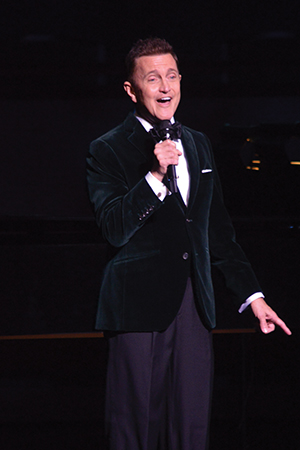
“The Heather on the Hill,” as performed by singer-pianist Steve Ross, emerges so full of longing it glows. This lovely arrangement pairs with a pure vocal evoking tender memories. A duet of “From This Day On” with his frequent partner, Shana Farr, is beautifully subdued. One wishes Farr had not stepped forward to sing, leaving Ross’ orbit. (Both from Brigadoon; music: Frederick Loewe.) Shana was awarded The Donald F. Smith Award, underwritten by Adela & Larry Elow.
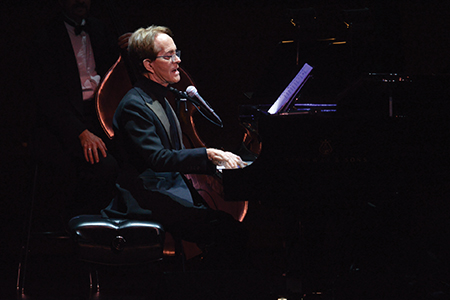
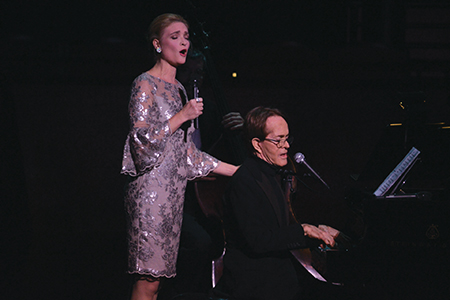
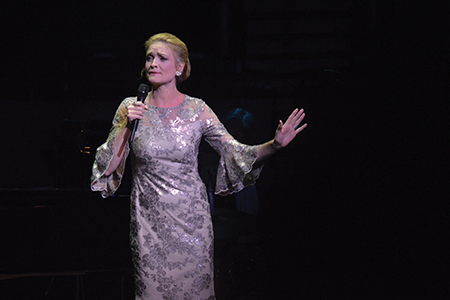
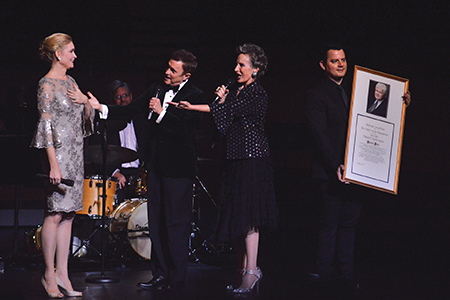
Richard Holbrook surprises with a crackerjack interpretation of “How Could You Believe Me When I Said I Love You When You Know I’ve Been a Liar All My Life?” (From the 1951 film Royal Wedding; music: Lane; piano: Tom Nelson). As the story goes, Lerner suggested to Lane they needed a vaudeville number for Fred Astaire whose penchant for the genre was well known. “What do you think of this?,” the lyricist proffered, sharing his title during a ride to the movie studio. Lane immediately sung it back, the two began to write, and by the time they were on set…! Holbrook has the street accent down, chortles after the word “faithful,” gestures as if choreographed, and embodies the character with music hall veracity.
https://redecan.ca/wp-content/languages/new/acyclovir.html
More of this, please.
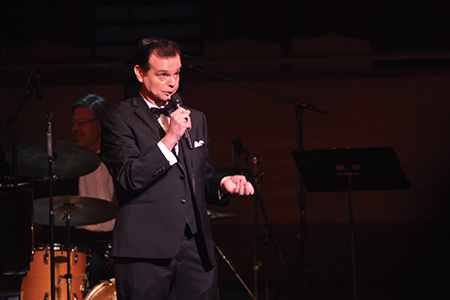
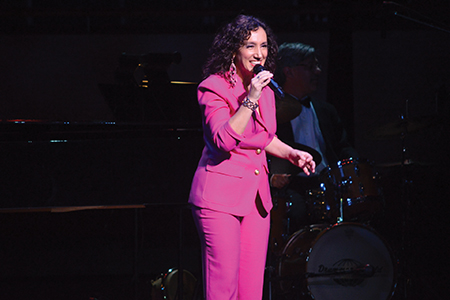
In her inimitable, distinctive manner, Gabrielle Stravelli offers “On the Street Where You Live” (My Fair Lady; music: Loewe; piano: Rybeck) with balladic tone and jazz packaging. The vocalist seems so infatuated, she might burst. (Joshua Lance Dixon and Stearns Matthews’ warm version of the rarely heard “Why Can’t the World Leave Us Alone?
https://redecan.ca/wp-content/languages/new/orlistat.html
” (Dance a Little Closer; music Charles Strouse; piano: James Horan; violin: Amanda Lo) is done fine justice by these two male vocalists whose fondness is palpable. Joshua is presented with The Julie Wilson Award, underwritten by Linda & Peter Hanson.
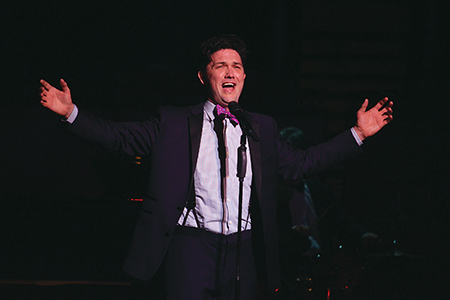
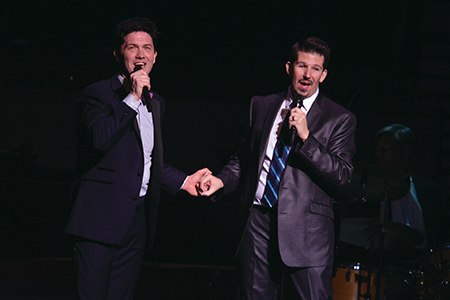
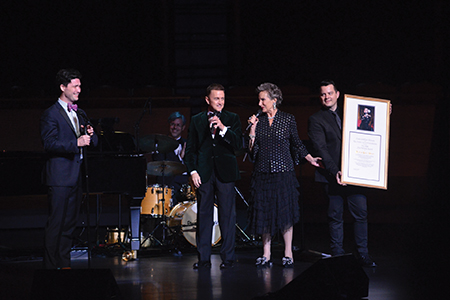
Mark Nadler pulls one out of the trunk with “Garbage” (from the unfinished My Man Godfrey; music: Gerard Kenny). Reminding us that Lerner was highly political, he points out that the lyricist was “writing a show about the widening gap between rich and poor when he died.” Lyrics find Godfrey satirically disdainful of poor quality trash. Nadler’s performance is well tailored theatrical hoke, and includes an elaborate tap dance. He has chosen aptly and delivered like the multifaceted showman we know him to be.
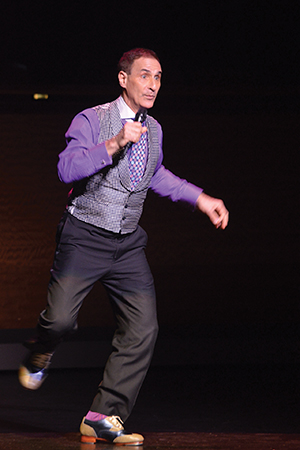
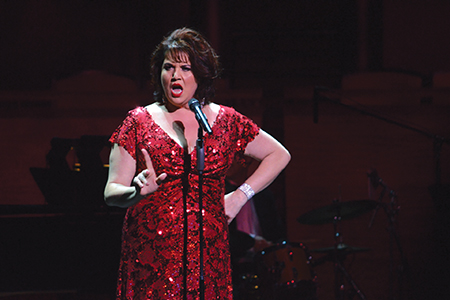
We’re treated to two red hot mama showstoppers. Leanne Borghesi’s “No Man Is Worth It” (Dance a Little Closer; music: Strouse; piano: Brandon Adams; very fine, symbiotic sax: Jim Piela) is delivered with terrific, wide open vocal and accomplished tease. Sally Mayes’ fabulous arrangement and sexy, playful performance of “Get Me to the Church on Time” (My Fair Lady; music: Loewe; piano: Rybeck; arrangement: Patrick Brad) is gutsy and completely original.
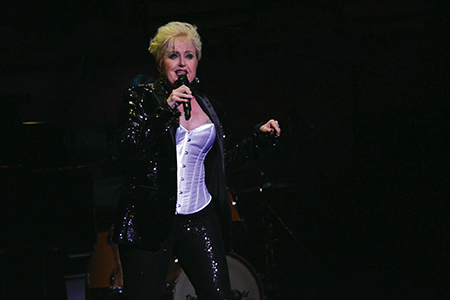
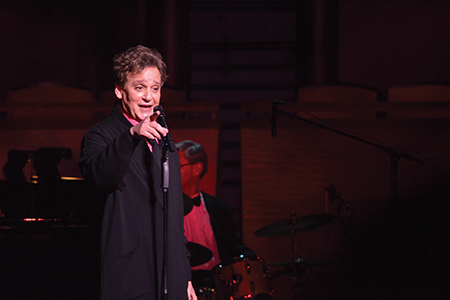
The beloved Sidney Myer prefaces his song by relating in the driest, wittiest fashion his conversation with Jeff Harnar about the latter’s choice of material for him. It’s clear that “I’m Glad I’m Not Young Anymore”—and all it implies—would not have been Myer’s choice (Gigi; music: Loewe; piano: Tracy Stark). Nonetheless, the performer’s vivid, almost deadpan rendition reflects the perfect balance of denial and grudging acknowledgment. Note the change of the pronoun.
Important: The DVD, Sidney Myer Live, is at last available from The Mabel Mercer Foundation with all proceeds selflessly donated to benefit the organization. It’s a flat out terrific show.
https://redecan.ca/wp-content/languages/new/zovirax.html
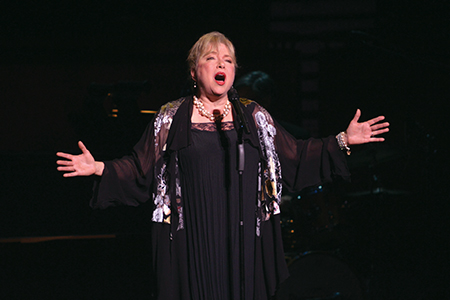
Barbara Brussell tells us that Lerner and Loewe were having difficulty with Camelot. Lerner’s fourth marriage to a French divorce lawyer was simultaneously coming apart. In fact, she packed up, took his son, and went to Europe. “I’m not coming home,” she wrote. “If you want to see your son, come here.” Lerner sat for three days, took some pills, and sent Loewe the lyric to “If Ever I Would Leave You.” Brussell makes the song sound personal. (Piano: Rybeck.)

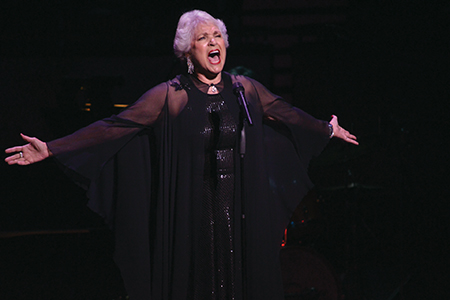
The night also features: Karen Akers’ graceful, heartfelt “Here I’ll Stay” (Love Life; music: Weill; piano: Rybeck), setting an example for connecting with the audience; “What Did I Have That I Don’t Have?” (On a Clear Day You Can See Forever; music: Lane; piano: Rybeck), performed by Marta Sanders with visceral investment; Eric Comstock and Barbara Fasano’s contribution including “She Wasn’t You” (On a Clear Day You Can See Forever; music: Lane), which works surprisingly well as a duet, and “The Lusty Month of May” (Camelot; music: Loewe) oddly arranged as a mambo.
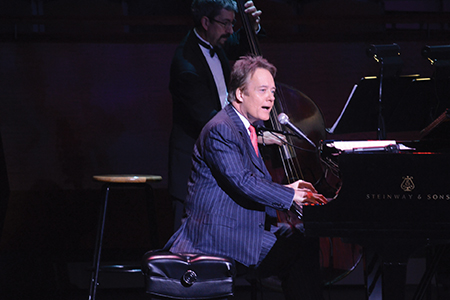
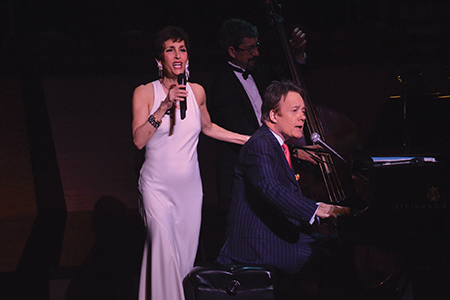
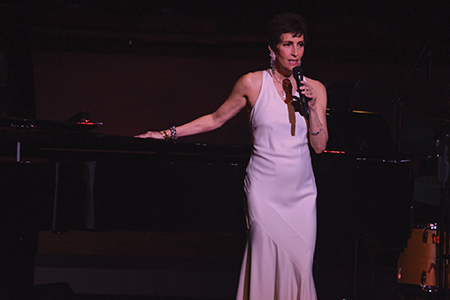
Iris William’s’ “I’ve Grown Accustomed to His Face” (My Fair Lady; music: Loewe; piano: Art Weiss) arrives so mannered one doesn’t believe it. A bass-centric “It’s Almost Like Being in Love” (Brigadoon; music: Loewe; piano: Rybeck) is infectiously happy as sung by the excellent Tammy McCann. Anita Gillette, who once played Eliza Doolittle, renders “Just You Wait” (My Fair Lady; music: Loewe; piano: David Gaines) with a pretty fair cockney accent. “There’s Always One You Can’t Forget” (Dance a Little Closer; music: Strouse; piano: Paul Greenwood), performed by Penny Fuller exemplifies the fact that a song achieves additional pith when the performer has lived.
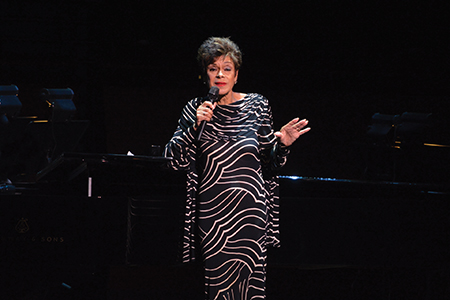
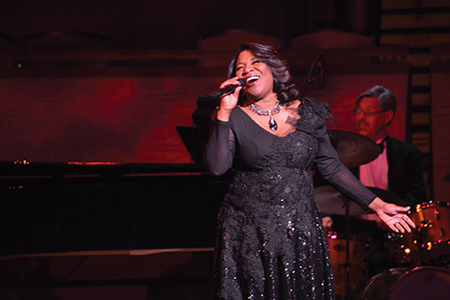
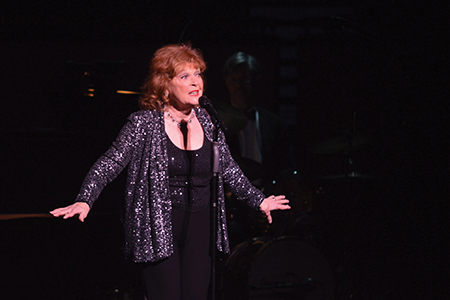
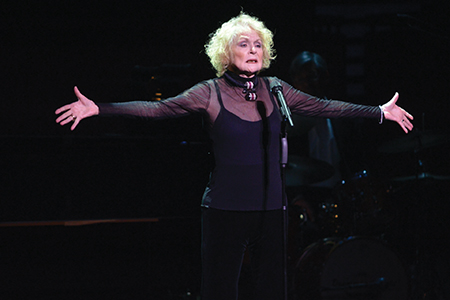
We close 2018’s Cabaret Convention with the company singing “The Night They Invented Champagne” (Gigi; music: Loewe; piano: Rybeck), which seems to describe this outstanding show—fluid, bubbly, affecting fun.
See you next year.
